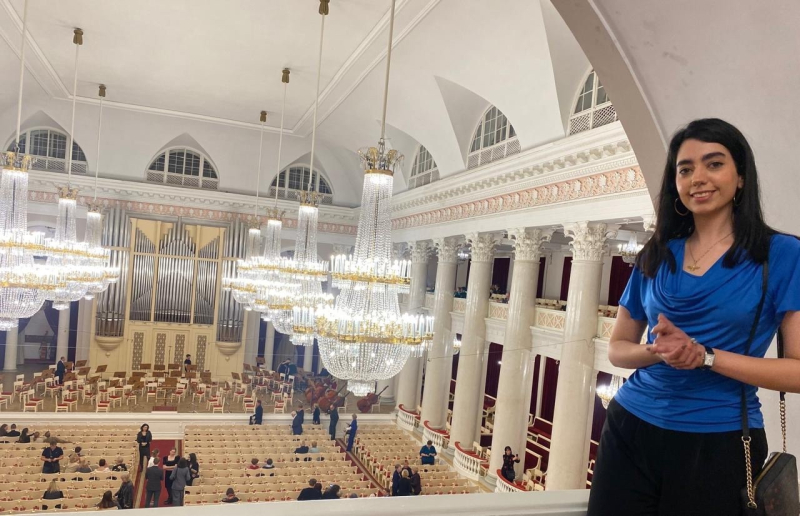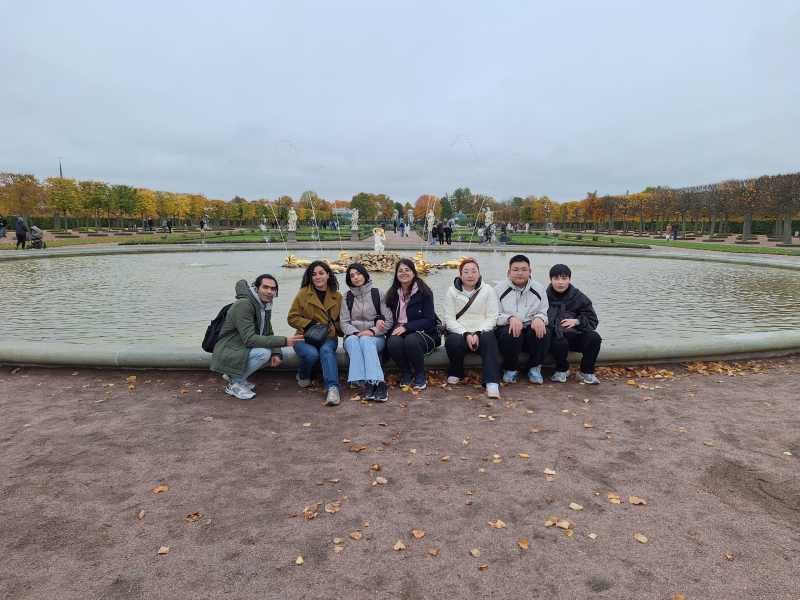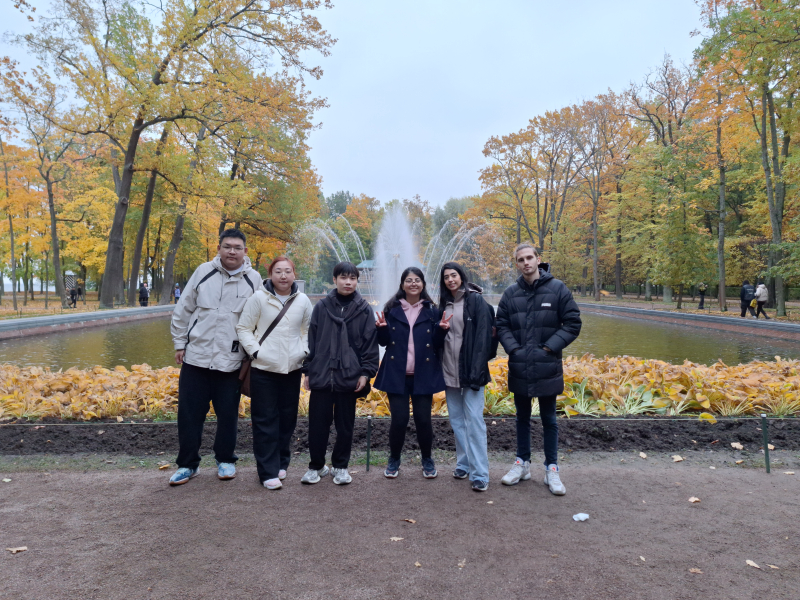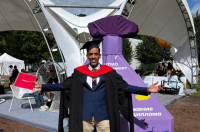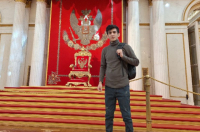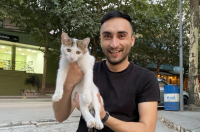Welcome, Dorsa! Let’s start our conversation with your brief introduction.
Of course! My name is Dorsa Abbasi and I’m from Shiraz, one of the largest cities in Iran. It’s a beautiful place with very friendly people. I was born and raised there. I completed my Bachelor’s degree in medical engineering at the Zand Institute of Higher Education. During my final year, one of my friends told me about an opportunity to apply for a Master’s program abroad and I decided to give it a shot. It’s my first time living in a foreign country and I consider it to be a significant achievement, especially for an Iranian girl like me. I’m happy to be here and experiencing something new.
That’s inspiring! What is the area of study for your Master’s program?
I’ve always been interested in mental health, particularly OCD or obsessive-compulsive disorder. Back in Iran, I co-wrote a review article on this topic with one of my professors. He inspired me to explore data analysis and artificial intelligence in the context of analyzing brainwave data. After researching programs, I discovered that universities like ITMO and Peter the Great Polytechnic University offer excellent opportunities in this field. I am currently at ITMO for the Russian Language Foundation Program with a plan to transition to Polytechnic University for my Master’s degree. However, I might consider joining ITMO since it has a strong reputation in data science and AI. The ambiance is also very comforting and accommodating for me.
That’s interesting! So, was this planned for you by the scholarship authority?
Yes, the scholarship authority assigned me to the Foundation Program here, but I had chosen Polytechnic University as my first priority while applying.
I see. Can you share more about your experience with the scholarship program?
I feel really fortunate to receive a scholarship from the Russian government. While the application process was not difficult for me because of the guidance I received from friends who had previously done it all, immigration was still challenging. Nevertheless, I overcame every hurdle and finally made it here. Overall, I am grateful for the support I’ve received along the way.
How has your experience with the Foundation Program been so far?
Learning Russian has been quite a task! It’s my third language after Persian and English and it’s definitely harder than English. But I enjoy the process. Learning a new language is great for the mind since it forms new connections in the brain. I’m trying to absorb as much as I can to communicate effectively and better integrate into life here.
That’s great to hear. You mentioned OCD research earlier. Could you elaborate on the work you’ve done?
OCD is a mental health condition that can affect anyone, regardless of age. It’s often tied to overactive or underactive areas of the brain. My research has focused on brainwave analysis to identify these imbalances. There are various treatment methods including therapy, medication, and neurofeedback – a process where patients perform tasks while their brainwaves are recorded and gradually normalized through repetition. I’m deeply interested in improving these technologies and contributing to neuroscience by helping develop advanced diagnostic and treatment methods.
That’s a commendable goal. I wish you good luck! Now, let’s talk about your life in St. Petersburg. How has the city treated you so far?
I arrived two months ago and have enjoyed my time here. I love historical places and St. Petersburg’s cultural richness is a big reason I chose this city as my study destination. It reminds me of Shiraz with its ancient heritage. I’ve been to Peterhof, which was stunning. But I haven’t been able to explore the city much due to my busy schedule. I have five hours of language classes daily!
Have you had any interesting experiences in Russia yet?
Absolutely! I had a memorable incident while traveling from Iran to Russia with my friend Raman – you might already know him. He missed his connecting flight during our transit while I, fortunately, made it on time. We had only a one-hour layover in Moscow and it was a huge airport. We really had to rush to catch our next flight.
During the flight to St. Petersburg, I had an interesting encounter. I was seated in the middle of a row of three. The man next to me on one side was chatting with the woman on the other side in Russian. Then, out of nowhere, he turned to me and asked in Farsi, "Is it okay if we talk?" I was stunned – he could speak Persian! He explained that he often traveled between Iran and Russia and knew a lot about Iran.
What really touched me was how kind he was. He shared his food with me, helped me feel at ease, and even gave me his phone number. He said, "If there’s anything you need to be brought from Iran to Russia, just let me know." It was so heartwarming to meet someone who not only spoke my language but also knew so much about my culture and country. It made me feel a little less alone on such a long journey.
How wholesome! How has the weather been for you, coming from a warmer region?
It’s definitely a big change. Shiraz has hot summers that can reach 40°C and mild winters, rarely going below -6°C. Right now, I’m preparing for my first real winter with snow. It is so exciting but also a bit daunting. Wearing layers will help, I guess, and I’m eager to experience the snowy season fully.
What about food? Have you tried any Russian dishes?
Yes! My favorite so far is pelmeni, which I have about once a week. It’s somewhat similar to Persian flavors, so I enjoy it a lot. I’m also looking forward to trying borscht soon.
Speaking of living in Russia, could you share your experience with ITMO’s dormitories?
I’m staying in the dormitory on Belorusskaya St. 6A, and I must say, it’s one of the best dorms at ITMO. Unlike some dorms that struggle with pests, this one is clean and well-maintained. My roommate is incredibly kind and has been a huge help in teaching me about Russian culture, making it easier for me to connect with people here. Additionally, having friends like Raman and Tara (who has been here for five years and speaks fluent Russian), has made settling in much smoother.
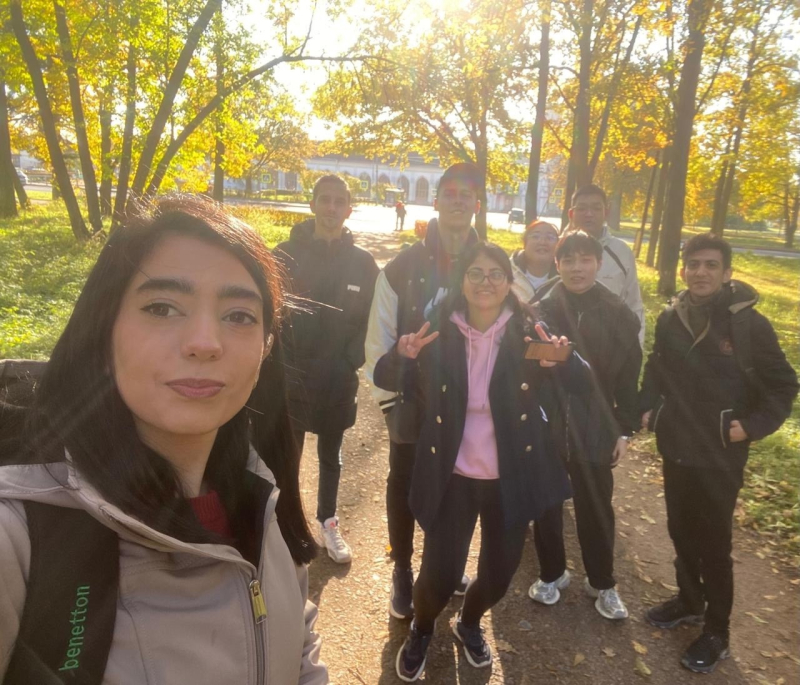
Dorsa and her friends in St. Petersburg. Photo courtesy of the subject
Sounds wonderful! What are your aspirations for your time in Russia?
My first priority is to master the Russian language. After that, I aim to specialize in data analysis and brainwave research. I’ve already reached out to some scientific groups working in this field, hoping to collaborate or even just observe their work. My ultimate goal is to contribute meaningfully to this area of neuroscience.
That’s admirable. Finally, what advice would you offer to students from Iran, especially young women, considering studying abroad?
My advice is to believe in yourself and pursue your dreams, no matter how daunting they may seem. For Iranian girls, taking the leap to study abroad is a humongous step, but it’s worth it. Don’t be afraid of new experiences – they’re opportunities to grow and learn. And if you ever feel at your lowest, use that moment to try something new. Life is about living fully, so embrace the journey and the challenges that come with it.
That’s truly inspiring. Thank you for sharing your story, Dorsa, and best of luck with your studies and future endeavors!
Thank you so much! It was a pleasure talking to you.
